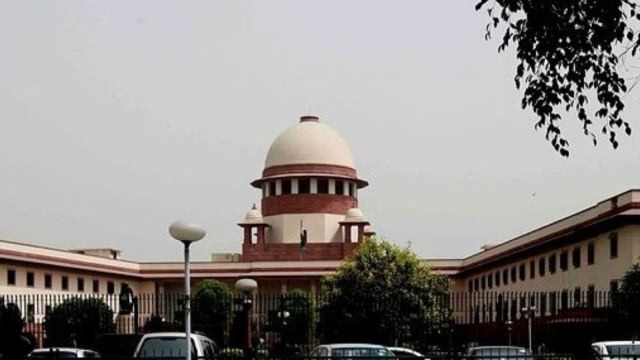SUPREME COURT has declared that fresh law graduates cannot sit for judicial services exams immediately after finishing their LLB. In a historic verdict to strengthen the professional competence of judges at the lower judiciary, the top court has directed that at least three years of practice at the bar before aspirants can sit for the judicial services exam.
The verdict was delivered by a three-judge bench headed by Chief Justice B R Gavai, Justice Augustine George Masih, and Justice Sandeep Mehta. The verdict is a reaction to concerns that inexperienced judges have difficulty handling tough legal issues right from the beginning of their careers, bringing judicial standards into risk.
The ruling was in a group of petitions that were submitted in relation to a 2002 Supreme Court judgment that had suggested a similar minimum practice norm, which was never enforced across the country. The present ruling now forces states and High Courts to synchronize their recruitment rules within three months.
The SUPREME COURT asserted that judicial officers have the onus of determining issues of life, liberty, and property from day one, and theoretical knowledge only is not enough for these tasks. The bench stressed that practical exposure to the practice of law is a must to provide candidates with the skills to administer justice effectively and compassionately.
As per the ruling, the experience of three years will be computed from the day of provisional enrolment with the Bar Council rather than the day of clearing the All India Bar Examination (AIBE). The court explained that even individuals who serve as law clerks to judges for the prescribed period will stand to benefit under the new rule, subject to being procured properly.
In order to authenticate the experience, the candidates should provide a certificate issued by an advocate who has a minimum of 10 years’ standing at the Bar. It should be signed by a District Judge in the event of district practice, or by a registrar or a like official in the event of practice in the High Courts or Supreme Court.

SUPREME COURT: How will the compulsory experience requirement affect future law graduates throughout India?
With this radical change in eligibility conditions, the SUPREME COURT has changed the conventional route to judicial careers, and it is crucial to ponder how young graduates will accommodate it. Numerous budding judicial officers who were geared up to appear for state-level recruitment examinations as soon as they completed their LLB might now be forced to reset their calendars, considering at least three years of practice as an advocate.
Coaching centers and law education institutions are also likely to amend their preparatory framework and course structure in order to include the added prerequisite of litigation experience. Experts have opined that this step will further professionalize the judiciary, albeit potentially resulting in a short-term decline in recruitment figures in the near term.
The bench also instructed that all judicial officers, after being hired, should complete at least one year of training before they start working as judges. This provision complements the experience requirement and aims to make sure that the future generation of judicial officers is not only legally correct, but practically oriented too, so that they can grasp the intricacies of court procedures, ethics, and social responsibility.
While this ruling has been greeted by most in the legal community as a long-awaited reform, it has also come under attack from a segment of law graduates. A number of recent LLB graduates have complained that the new rule postpones career entry and adds to financial hardship. Senior legal figures, however, contend that the greater long-term advantages to the judiciary and litigant public far outweigh these transient disadvantages.
The SUPREME COURT also clarified that the new rule would take effect prospectively, i.e., existing recruitment rounds for which the notifications already stand released will not be affected. But all subsequent judicial recruitment notifications shall take into account the amended eligibility criteria.
The ruling conforms to the suggestion of the All India Judges Association and the Law Commission, both of which have in the past demanded that only senior advocates should be made judges. The SUPREME COURT ruling now lends binding legal authority to these suggestions.
By making this move, India follows in the footsteps of nations where previous judicial experience is a condition for holding judicial office. The United States, the United Kingdom, and Australia have all followed such norms for quite a while.
State governments and High Courts are now under the challenge of quickly amending their rules of judicial services to conform to the order. Some states, particularly those with large vacancies in courts, are likely to ask for clarifications or extensions, though the SUPREME COURT has allowed a three-month time frame for complying.
As this new era in recruitment for the judiciary gets underway, players in the legal landscape — from law schools to Bar Councils — are going to have an important part to play in helping new graduates meet the new eligibility standards. While the path to the bench may now be longer, the SUPREME COURT has stated categorically that a more seasoned judiciary will better serve the cause of justice.
ALSO READ
Supreme Court Slams CLAT Errors
Supreme-Court-Express-Photo-Amit-Mehra